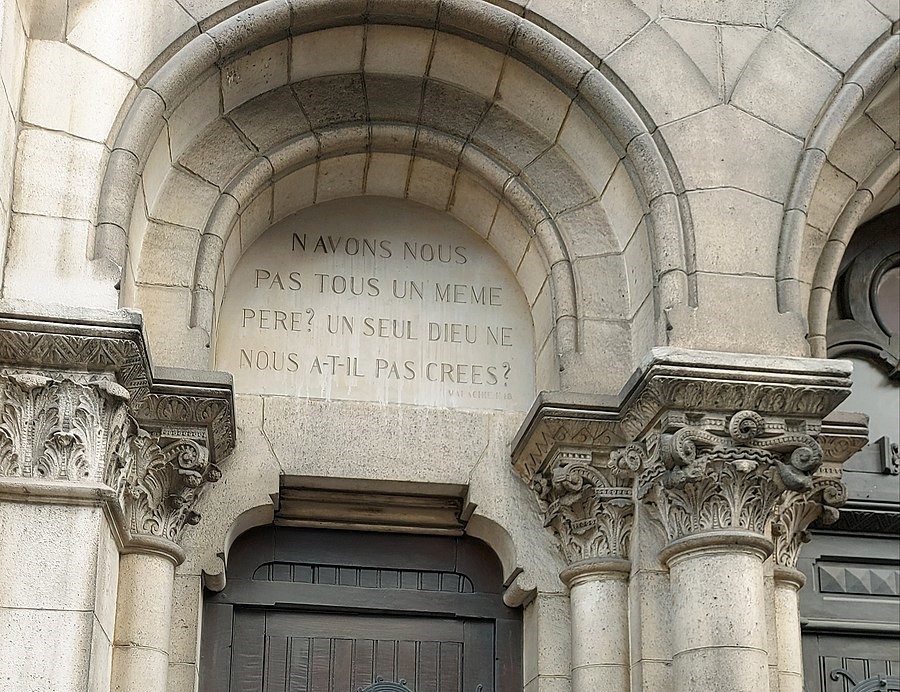The Jewish New Year was celebrated in Brussels by the EU institutions at a reception last week with the blowing of the Shofar as a wake-up call for repentance and a better future with peace in the world.
In fact, the Jewish holiday season at this time of the year – in the Hebrew calendar called the Days of Awe – started with the New Year (Rosh Hashana) and continues on Tuesday evening (4 October) with the Day of Atonement (Yom Kippur), which is a fast day. Both holidays share a common focus on repentance and turning the page in the coming year.
According to the former chief rabbi of Moscow, Pinhas Goldschmidt, who left Russia in protest against its invasion of Ukraine, the Shofar blow is also the sound of freedom and equality among both individuals and nations. “It was historically blown at the beginning of the jubilee year – the year that freed all slaves and returned all sold ancestral property,” he wrote in an op-ed (New York Times, 3 October).
The EU celebration was organized by Jewish organisations in Brussels in cooperation with the European Parliament and took place at the Permanent Representation of North Rhine-Westphalia. The event was combined with a photo exhibition of synagogues and stories of members of the Jewish community in the Central Bohemia Region in the Czech Republic.
“According to rabbinic tradition, the Shofar acts as a spiritual ‘wake-up call’ - an appeal to become stronger, to build upon the positive and the good in the world,” said European Parliament Vice-President Nicola Beer (Renew Europe Group). “What a wonderful sign of hope to find light in a world that is full of challenges and crises.”
In her speech, she referred to the on-going war in Ukraine, the energy and ecological crises, and discrimination and hate crime. “All of this affect us as human beings. We need to find the strength within us, within our families, our communities, our fellow citizens. The symbolism of the Shofar aims to inspire all of us to reflect and critically examine what we can do better.”
Ambassador Edita Hrdá, permanent representative of the Czech Republic to the EU and representing the Czech EU presidency, recalled that this period of the year should be used as an opportunity to reflect and reconnect, but also to look forward. “The sound of the Shofar reminds us of this.”
“Looking back, it has been a turbulent year, marked by great hardships and suffering, but also by amazing solidarity and ability to come together as one when others needed us. Looking forward, I hope we will manage to carry on with the unity we have found within us in the face of injustice and suffering and transform it into a lasting change while learning from our mistakes.”
The European Commission was represented by Daniel Braun, Deputy Head of Cabinet of Vice-President Vera Jourova. He referred to the Commission’s action plan on combating antisemitism in Europe and fostering Jewish life in Europe. The EU is now also rolling out the Code of Practice on Disinformation and the Media Freedom Act with new rules to protect media pluralism and independence in the EU.
“By safeguarding fundamental rights and the rule of law, EU acts in the interest of all EU citizens,“ he told The Brussels Times. “But it’s also relevant for Jewish life in the member states as it contributes to the fight against antisemitism and enhances the security of the Jewish communities.”
Rosh Hashana is celebrated in memory of the creation of the world but has also a deeper meaning with soul-searching about the past year. It continues on Yom Kippur with personal prayers for forgiveness for sins and misdeeds. Sins committed against fellow people require reconciliation and can only be forgiven by those concerned and not by any mediator.
The Shofar is an ancient musical horn and is sounded several times during the Rosh Hashana service and marks the end of the fast day of Yom Kippur (on Wednesday evening). In Biblical times it was used among others at the coronation of kings. It is made of a ram’s horn in memory of the animal which Abraham sacrificed instead of his son Isaac, according to a Biblical story which still challenges exegetes.
The Brussels Times

